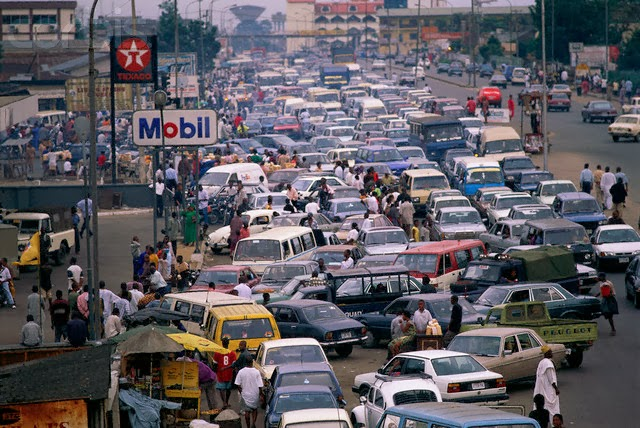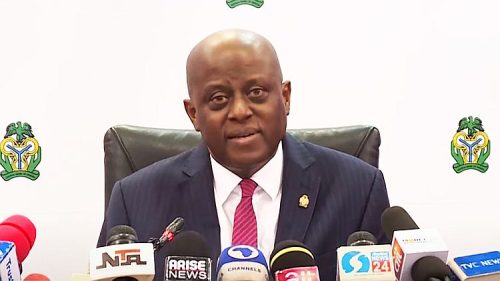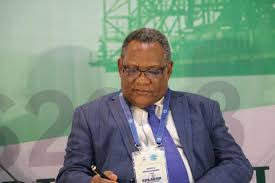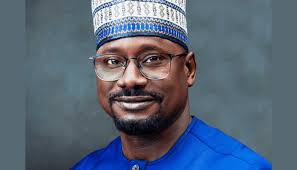Anxiety as marketers say fuel scarcity may linger on

.Insist FG owes independent marketers N800bn subsidy debt
.Functional refineries will end fuel crises- Kachikwu
Nigerians may wait longer for the much desired relief, following pains and losses they have been facing over perennial fuel scarcity nationwide as the independent marketers, one of the critical stakeholders in the oil sector have disclosed that fuel scarcity may recur soon.
The Daily Times recalls that Nigerians woke up to another round of petrol scarcity, few weeks to Christmas and New Year, even with its attendant implications of long queues, transport fare increases, over 100 per cent hike, especially in the pump price of Premium Motor Spirit (PMS) from N145 per litre to over N200 per litre.
But the crisis appears to be thinning out, as increased supply of petrol is currently being experienced, while long queues which characterised the past three weeks are fast fading out.
The stakeholders in the oil and gas sector, on Thursday, however, painted a gloomy picture of state of the sector, indicating that fuel scarcity may still recur soon unless the government immediately address the problem of high landing cost of imported fuel and the supply gap, which they said, caused the scarcity experienced across the federation last December.
The Minister of State for Petroleum, Dr Ibe Kachikwu, the Group Managing Director of the Nigerian National Petroleum Corporation (NNPC), Dr Maikanti Baru and other stakeholders in the oil and gas sector in their separate presentations, canvassed for deregulation of the sector and building of refineries to process product for local consumption.
The stakeholders made this known during a Public Hearing organised by the Senate Committee on Petroleum, Upstream, to address the fuel scarcity challenge in Nigeria.
Addressing the public hearing, Kachikwu recounted that a rumour on possible increase in the pump price of petroleum, aided by the media immediately led to the scarcity, which according to him, was capitalised upon by profiteers to worsen the case for Nigerians.
Kachikwu also recalled that the high price of products across the Nigerian borders, which he said, stood at between N300 and N400 per litre had encouraged marketers to divert products to specific areas to make huge profits, hence the acute shortage across Nigeria.
He also alluded to an earlier threat of a strike by the Petroleum and Natural Gas Association of Nigeria (PENGASSAN) as another reason the fuel scarcity came about, a situation he said, prodded panicky buying across the federation in the process.
He, however, assured that plans were underway to import sufficient fuel into the country, most especially in the first quarter of this year to halt the problem of scarcity to add up to 1.93 billion liters already in store.
Kachikwu further disclosed that it was regrettable that 40 years after, the country could not refine its petroleum products but continue to import the products.
He said the ministry and the NNPC were working round the clock to find a lasting solution to petrol scarcity.
As part of the solutions to permanently end the scarcity, Kachikwu said there is the need for the country’s refineries to be functional.
He said, “In what I might call an emergency before the work that we are doing on the refineries that would be finished sometime in 2019.
“I want to remind that over two years we haven’t had queues. We are spending night and day to find solutions to nip this in the bud”.
He listed non-payment to marketers as one of the reasons for the scarcity. The minister also expressed regret that some people took advantage of the situation to hoard and hike prices.
In the same vein, Baru, in his presentation, listed high landing cost, outstanding debt on subsidy owed to major petroleum marketers, high exchange rate, insufficient Forex, shortage of petrol trucks for wider distribution, lack of auto parts for trucks, bad roads and other general charges at distribution points as major cause of the last widespread fuel scarcity.
Representatives of the Major Oil Marketers Association of Nigeria (MOMAN), Thomas Obafemi Olawore in his presentation, said the insufficient participation of Independent Petroleum Marketers in importation of fuel was the reason the scarcity escalated.
He disclosed that before the scarcity of petrol broke out in December, the Federal Government still owed major oil marketers about N800billion debt on fuel subsidy.
Meanwhile, the Senate committee experienced mild drama at the public hearing, as three different people claimed chairmanship position of the Independent Petroleum Marketers Association of Nigeria (IPMAN).
The incident occurred when the Senate Committee Chairman, Downstream, Senator Kabir Marafa, asked stakeholders to introduce themselves.
But, this was met with confusion when three people – Obasi Lawson, Sanusi Fari and Okoronkwo Chinedu – all claimed to be the head of IPMAN.
Chinedu told the lawmakers that the Court of Appeal recently upheld him as the authentic chairman of IPMAN.
Lawason and Fari also argued their case. Given the development, the committee acknowledged Aminu Abdulkadir, executive secretary of IPMAN, to speak for the association.
Marafa said the hearing was not set up to settle disputes, but to find the root cause of the petrol scarcity.
He said if needs be, he would take all their submissions geared towards addressing the fuel scarcity.










